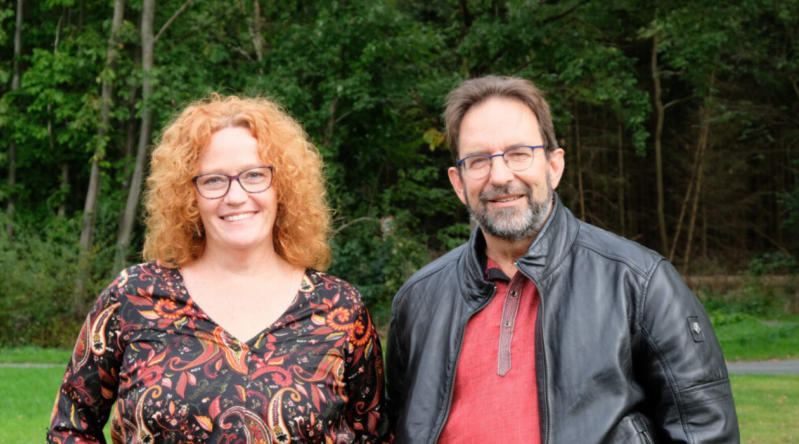
The Rev. Jan C. Wessels, who serves as Co-General Secretary of the European Evangelical Alliance (EEA) alongside Co-General Secretary Connie Main Duarte, recently shared some of his reflections with Christian Daily International about his personal experience at the Fourth Lausanne Congress on World Evangelization (Lausanne 4) in Incheon, Korea.
Wessels commented he is still processing his thoughts on the mega event held at the end of September (2024), which drew more than five thousand evangelicals from across the world together to discuss the Great Commission and strategies to fill the “gaps”.
He commended Dr. Jay Matenga, head of the World Evangelical Alliance's Mission Commission and Opinion Editor for Christian Daily International for providing constructive points, both “positive and critically”, about the congress: “Jay Matenga has done a great job.” [See Matenga’s first of three op-eds here.]
What immediately stood out for Wessels is the sheer largeness of Lausanne 4 – “It was huge,” he remarks. Yet he remains uncertain about what the congress brought “in the sense of new thinking about world evangelism.”
“It is always inspiring to be with many mission-minded people in a conference but 5,000 people is just too much for good connections. The program was packed so that it was also difficult to network without skipping some of the sessions.”
Wessels personally enjoyed the Bible studies and table group discussions, joining three Americans (one of African descent), and nationals from India, Hong Kong Chinese with himself as a European: “I felt we mixed a real global perspective in our discussions.”
A GAP discussion Wessels attended was interesting but he felt the format for discussions was “not always helpful.”
“I attended the Gap about Secularization/Secularism. Using a language of: closing the gap, is difficult to understand. In my opinion Secularism is not a gap that can be closed, but the ocean we have to navigate on. A lot of time and energy was spent on correcting the language.”
Wessels remains somewhat unsure about whether Lausanne 4 met his expectations. He simply confesses: “I don’t know” and reiterates the challenge of trying to find specific people he was looking for amid such a large crowd.
“I had hoped to meet a lot of my network people. Apart from struggling to find them in the multitude of 5,000 people, even with the app, and [make appointments] with them, I missed a lot of our key global mission leaders. They were just not there: especially a lot of indigenous mission leaders from Africa and even Asia.”
Wessels considers the “very high registration fee” for the congress made it difficult for indigenous mission leaders to afford the event and for those attending, it came at a high financial cost.
“I know some of them have taken personal loans and made huge debts that will still burden them for a long time.”
Wessels is equally hesitant to yet conclude his thoughts on whether Lausanne 4 had a positive effect on the work of the EEA. “We will have to see.”
“There were quite a few of our leaders, but we haven't had a good opportunity to evaluate what the positive effect is,” Wessels adds. “There are countries that were really engaged, but there were also many national EAs (Evangelical Alliances) that were not engaged.
"The great advantage we have in Europe that we are very close to Lausanne Europe, and I am sure they will keep on pushing the Lausanne agenda in Europe, though in a very European way.”
Wessels is also careful in using the widely used terminology about “fulfilling” the Great Commission because - as he points out - the Great Commission will only be fulfilled when Jesus actually returns. Yet he foresees a fresh impetus upon the notion of discipleship.
“We just have to be faithful in doing what Jesus has said. But yes, I think the whole idea of discipleship has at least received a new momentum.
"I hope that together with Lausanne Europe, we will be able to help national alliances to really prioritize discipleship in a new way. I had hoped that Lausanne 4 would give a lot of new ideas for that, but I haven't seen a lot of new thinking.”
So, what are the next steps as the memories of Lausanne 4 fade and the evangelistic objective to reach others with the life-transforming love of Jesus Christ continues?
“I hope that the Evangelical family in Europe will be inspired and re-energised to put and keep discipleship, spiritual and missional formation as a lifelong learning, at the top of the agenda, and that they will find new ways to reach unreached groups and subgroups in Europe.”
In a sense, Wessels acknowledges this is not a new concept because Lausanne Cape Town 2010 had “called for this already.”
“And since then Pope Francis has called for it (2013), the Anglican Communion have called for a decade of intentional discipleship and disciple making (2016), the World Council of Churches in Arusha, Tanzania (2018) and last but not least the General Assembly of the World Evangelical Alliance in 2019.”
It is likely that further reflections and conversations will bring about a clearer picture of what remains for the longer term after Lausanne 4. As Wessels says he is still “processing all the impressions.”





